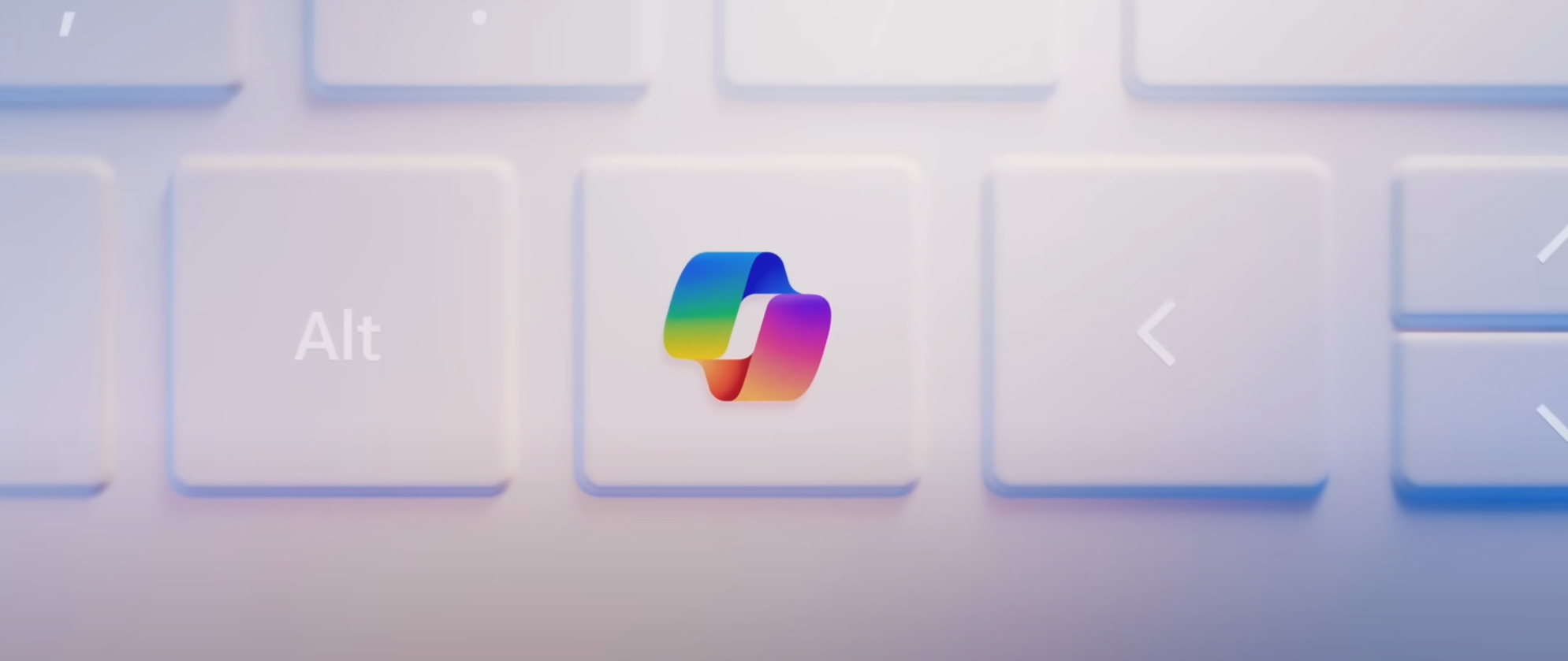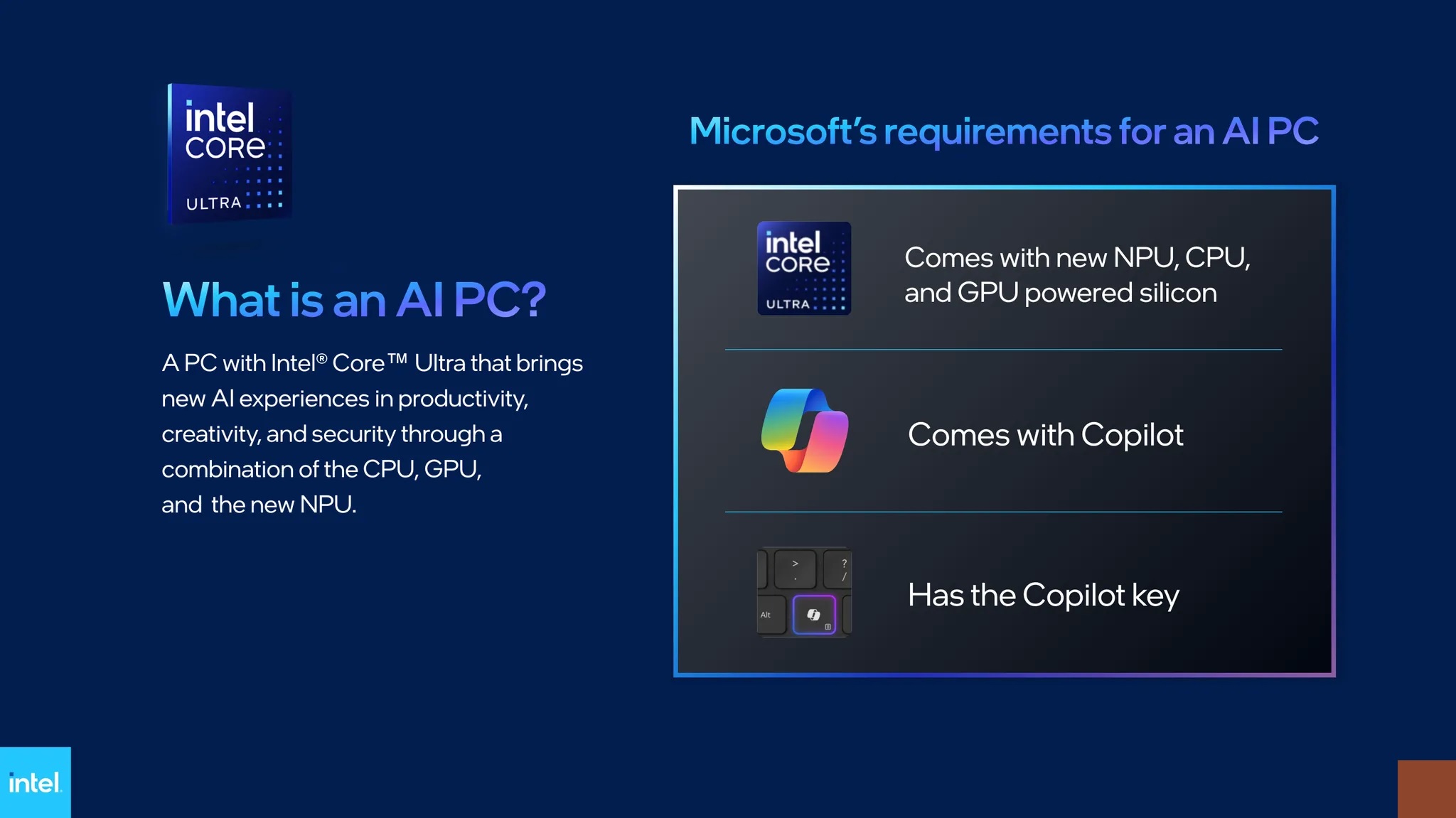Microsoft previously announced a dedicated Copilot key for upcoming AI PCs, an attempt to highlight Copilot’s presence in Windows 11. We didn’t mind the idea of having a dedicated Copilot key, especially as Microsoft was developing useful AI features that would require more than just a basic CPU-GPU combination.
These AI PCs would rely on a Neural Processing Unit (NPU) to handle the AI tasks natively. However, a recent statement shared by Intel to Verge reveals that a PC needs to have a few crucial features to be considered as an AI PC by Microsoft.
Intel shared that the PC must have an AI-powered CPU with NPU (like Intel Core Ultra), a Copilot keyboard key, and Copilot. However, some PCs have already shipped in 2024 without the Copilot key, which raises a concern.

Copilot is a software-level feature that you can launch using the Win + C shortcut, or the taskbar icon. Unless the Copilot key does anything other than that, we don’t see an issue why the PCs that already have all the AI-centric hardware cannot be deemed as an AI PC.
Users can still launch Copilot like they used to with the keyboard shortcut. Windows can use the embedded NPU in these systems for other upcoming features like AI Explorer, Windows Studio effects, etc. Excluding some PCs with capable hardware only because of a keyboard key doesn’t seem fair.

Keeping the whole AI branding aside, as long as the NPU-based features work in these PCs, there’s nothing to worry about. Microsoft recently launched its Surface lineup with Intel Ultra AI processors, which would be the first batch of true-AI PCs (Dell and Lenovo have released a couple) this year.
There has also been a new change in the management due to Panos Panay’s exit from Microsoft.
Pavan Dhulari will oversee Windows and Surface developments
As Microsoft continues to bet big on AI PC requirements, it has announced that Pavan Davuluri is the new chief of Windows and Surface. Microsoft divided Windows and Surface into different groups in September 2023, when Panos Panay left Microsoft to join Amazon.
Pavan Davuluri managed Surface hardware, whereas Mikhail Parakhin managed Windows. But Parakhin recently announced his exit to venture for new opportunities.
After this announcement, Microsoft brought the Windows and Surface teams together again. The team will be led by Pavan Davuluri, who will report to Rajesh Jha, Microsoft’s head of experiences and devices.
Pavan Davuluri has been a part of Microsoft for more than 23 years. During his tenure as the Surface lead, he closely worked with Microsoft’s collaboration with Qualcomm and AMD to create custom Surface processors.
“As part of the change, we are bringing together the Windows Experience and Windows + Devices teams as a core part of the Experiences + Devices (E+D) division. This will enable us to take a holistic approach to building silicon, systems, experiences, and devices that span Windows client and cloud for this AI era,” said Rajesh Jha in his memo, which The Verge spotted.
According to two people familiar with Microsoft CEO Satya Nadella’s thinking, the appointment of Suleyman stemmed from Nadella’s dissatisfaction with his staff’s work. As the CEO of the Microsoft AI team, Suleyman will look after AI products like Copilot, Bing, and Edge, and he will be reporting directly to Nadella.
The post Microsoft details Windows 11 AI PC requirements, appoints a new head for Windows appeared first on Windows Latest
